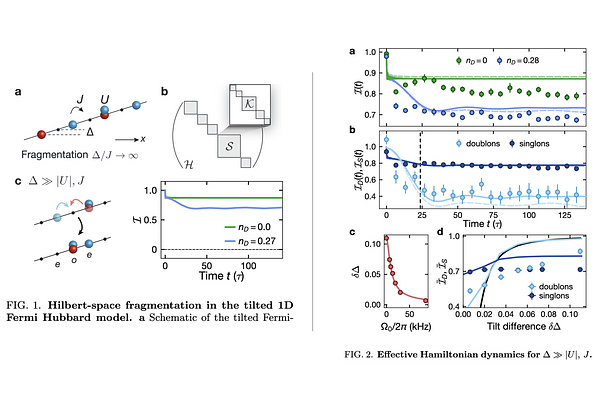Experimental realization of fragmented models in tilted Fermi-Hubbard chains

Experimental realization of fragmented models in tilted Fermi-Hubbard chains
Thomas Kohlert, Sebastian Scherg, Pablo Sala, Frank Pollmann, Bharath Hebbe Madhusudhana, Immanuel Bloch, Monika Aidelsburger
AbstractQuantum many-body systems may defy thermalization even without disorder. Intriguingly, non-ergodicity may be caused by a fragmentation of the many-body Hilbert-space into dynamically disconnected subspaces. The tilted one-dimensional Fermi-Hubbard model was proposed as a platform to realize fragmented models perturbatively in the limit of large tilt. Here, we demonstrate the validity of this effective description for the transient dynamics using ultracold fermions. The effective analytic model allows for a detailed understanding of the emergent microscopic processes, which in our case exhibit a pronounced doublon-number dependence. We study this experimentally by tuning the doublon fraction in the initial state.